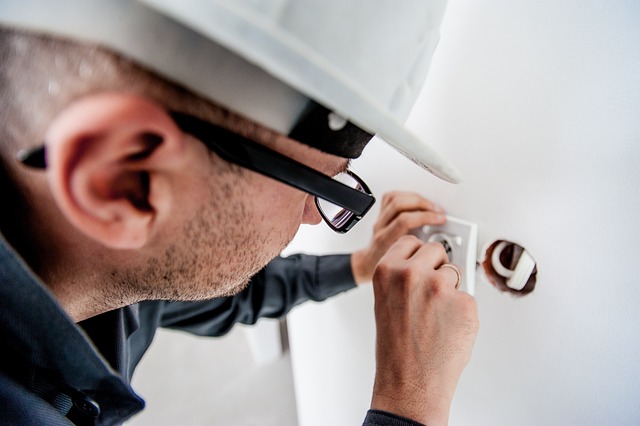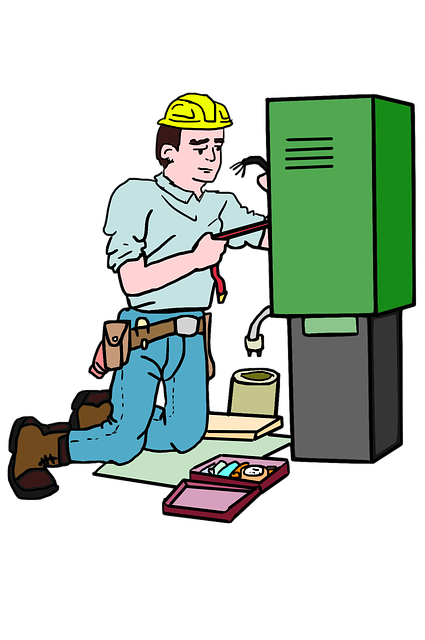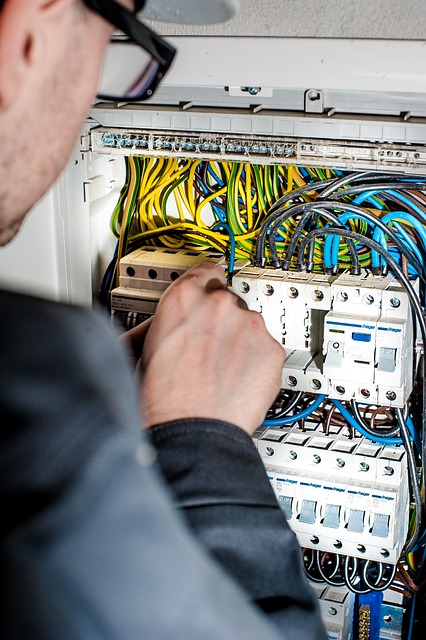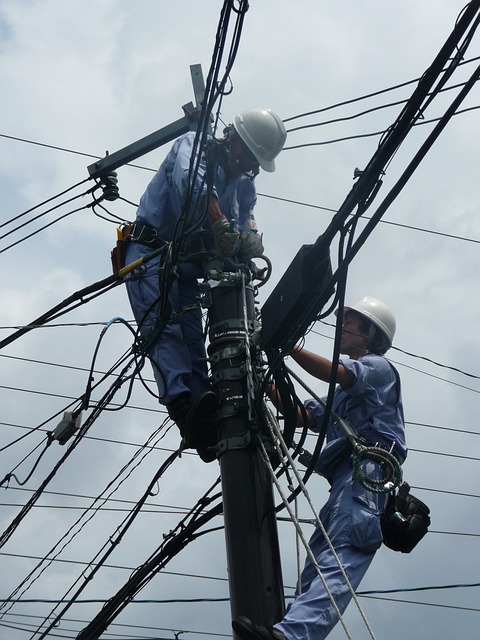Backup power systems, integrated by skilled electricians, ensure uninterrupted electricity during outages or natural disasters, maintaining crucial operations like lighting, heating, cooling, and medical equipment. An electrician's expertise is vital for safe generator installation, wiring, grounding, circuit protection, adherence to local codes, and system maintenance, enhancing safety and operational continuity for both residential and commercial spaces. Selecting the right generator size, fuel type, and noise considerations requires expert knowledge, with electricians offering tailored recommendations based on property demands, infrastructure, and budget. Regular maintenance by qualified professionals prevents hazardous situations and ensures optimal generator performance and longevity.
“Backup power systems are vital for ensuring uninterrupted operations during power outages, and generators play a pivotal role in these setups. This article explores the essential aspects of installing generators for reliable backup power. From understanding the significance of these systems to selecting the perfect generator, it guides homeowners through the process. Learn how a qualified electrician is indispensable in this task, offering expert advice on safety measures and maintenance to ensure efficient generator operations.”
- Understanding Backup Power Systems and Their Importance
- The Role of an Electrician in Installing Generators
- Choosing the Right Generator for Your System
- Safety Measures and Maintenance Tips for Efficient Operations
Understanding Backup Power Systems and Their Importance

Backup power systems play a crucial role in ensuring uninterrupted electricity supply, especially during outages or natural disasters. As an electrician, understanding these systems is vital for providing reliable and resilient solutions to homes and businesses. These systems are designed to kick in automatically when the primary power source fails, preventing disruptions to essential operations like lighting, heating, cooling, and medical equipment.
For residential and commercial spaces alike, installing generators as part of a backup power system offers peace of mind and safeguards against potential risks. Electricians skilled in generator installation ensure these powerful machines are properly connected and integrated into existing wiring, allowing for seamless transition from main power to backup when needed. This critical service contributes to the overall safety, comfort, and operational continuity of establishments across various sectors.
The Role of an Electrician in Installing Generators

When installing generators for backup power systems, the role of an electrician is paramount. They possess the technical expertise and knowledge required to ensure that the generator is safely and effectively integrated into a property’s electrical system. Electricians handle wiring, grounding, and circuit protection, guaranteeing that the generator functions seamlessly and securely.
They also play a critical role in ensuring compliance with local electrical codes and regulations. An electrician will assess the property’s power requirements, select an appropriate generator model, and install it according to best practices, including proper ventilation and fuel storage. Their work is essential for maintaining the integrity of the backup power system, safeguarding against potential hazards, and ensuring reliable operations during power outages.
Choosing the Right Generator for Your System

Choosing the right generator is a crucial step in setting up an effective backup power system, and it’s a task that should be left to a qualified electrician. There are numerous factors to consider when selecting a generator, from the size and capacity required to match your energy needs, to fuel type (diesel or gasoline) and noise levels for outdoor installations.
An electrician will assess your property’s power requirements, existing infrastructure, and space constraints to recommend the most suitable generator model. They can also guide you on whether a standalone generator or a more advanced system integrating with solar panels or batteries would be better for your needs and budget.
Safety Measures and Maintenance Tips for Efficient Operations

When installing generators for backup power systems, safety should always be a top priority. Electricians play a crucial role in ensuring proper setup and maintaining efficient operations. Regular maintenance checks are essential to identify potential hazards such as loose connections, worn-out components, or fuel leaks, which could lead to dangerous situations like fires or explosions. A qualified electrician can perform these checks, replacing any faulty parts and providing guidance on best practices for safe generator operation.
To guarantee optimal performance, it’s important to follow a consistent maintenance schedule. This includes cleaning the air filters regularly to maintain adequate airflow, checking oil levels and topping up as needed, and inspecting belts for any signs of wear or damage. Additionally, keeping the generator free from debris and ensuring proper ventilation are vital steps in prolonging its lifespan and maintaining efficient operations. These measures, when adhered to by a skilled electrician, will contribute to a reliable backup power system, offering peace of mind during power outages.
When it comes to ensuring uninterrupted power, backup power systems played a crucial role. An electrician is an essential professional in this process, offering their expertise in installing generators that can provide vital support during power outages. By carefully selecting the appropriate generator for your system and adhering to safety guidelines, you can rely on these installations for efficient and reliable backup power. Remember, regular maintenance is key to keeping these systems running smoothly, ensuring your peace of mind and protection against unexpected interruptions.
